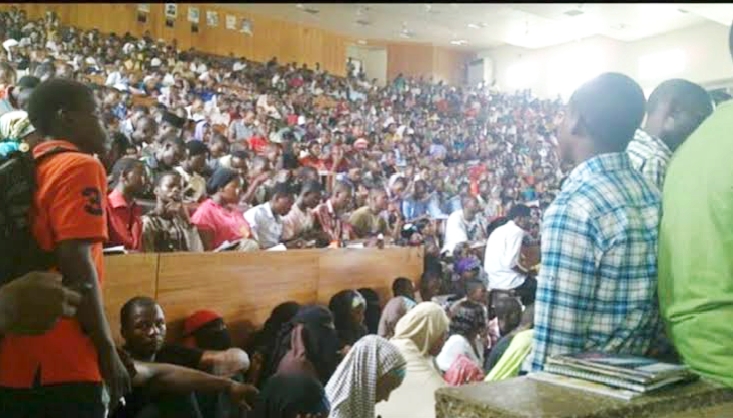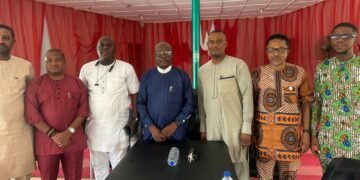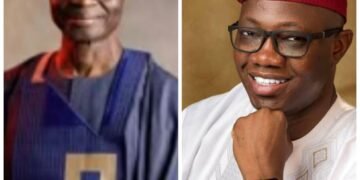Professor Eníkànlómò has been very devoted to his calling. He believes in developing future leaders, publishing in the best outlets and putting the names of his university and the country on the global map. But, it goes beyond that. When he joined the university system, the system was still working. There was electricity to research, publish and teach. The economy was better and with careful use of available resources, he was still able to survive. With time, electricity supply became epileptic, his laboratory that once had some materials to work with lacked the essentials. He could not teach his students again with modern equipment. Suddenly, stove replaced Bunssen burner in the laboratory. Some of his friends who could afford powering their generators to carry out experiments could no longer do that without experiencing severe strain on their resources. Now close to his retirement, Professor Enikanlomo thinks of what government will pay him. His present salary is a little above N500, 000. When he joined, it was with passion. Now, the passion is dying, if not dead. He has been wounded terribly by the failure of government to improve the salaries and working conditions of university lecturers. As he looks back, Professor Enikanlomo, summarised his thoughts with the title of the Valedictory Lecture of the late renowned Professor of Radiation and Health, Idowu Farai, that the university that he met was better than the one he is about to exit from.
The Nigerian public university system is in serious distress. Let federal or state governments not fool you. Our University administrators are equally becoming like the Nigerian governments. They love creating false impressions through the painting of buildings and construction of magnificent entrance gates. The gates of these universities may be beautiful but the stories of lecturers who are saddled with the tasks of imparting knowledge within the system is pathetic. Lecturers can’t see anything renewed in their hopes. They struggle not to say that their hopes for taking up the noble profession are dashed, but as they wake up every day to go to their offices, they feel used and trampled upon. They often wondered if it is a sin to take up the profession. Their offices are mostly paired. Since they are not often provided with current materials, they still use their limited resources to update their knowledge. They teach overpopulated classes. Their institutions struggle to provide electricity for them.
Their standards of living have dropped. Bad economic policies of the current administration have forced many lecturers to abandon their vehicles at home. Some of them now trek distances to reduce the biting cost of transportation. Those with two cars have parked one while sharing one with their wives to do ‘school runs’. Some with health conditions struggle to maintain routine checks and money for medications. Younger scholars are afraid of what will become of them if things continue to go downward. In one recent recruitment, the young men with PhD were offered Lecturer II. A lecturer II goes home with about N180,000 after tax while a newly appointed Professor does not take N500,000 home in our federal universities. Some of the newly recruited resigned few months after their appointment. They reasoned that it would be difficult to sustain themselves and raise a family and still remain useful with that salary in this terrible economy.
The implication of this poor welfare conditions on the university system in Nigeria is that, qualified intellectuals are running away from lecturing while those who have nothing to do with intellectualism are getting recruited into the system. The future is already predictable.
While younger lecturers are leaving or finding options to leave, university old-timers are sad. Those in the mid-career cadre also feel trapped. Mid-career lecturers contribute money to ensure that their courses get accredited. Their university managements have become parasitic. They don’t release enough money to run their departments, else, the Head of Department becomes ‘corporate beggar’, looking for who will donate papers, computers, and so on. Public accommodation for students on campus is terrible. There is no how you will train someone in that environment and the person will appreciate voting money into education when they get to office. Consequently, mid-career academics are simply buying time to become Professors and Japa out of the country with their families in search of greener pastures, even if it is to enjoy life for few years before death comes. Staying put for those people is like sleeping in poorly ventilated room during a hot weather with mosquitoes singing emilokan (it is my turn to suck blood) into your ears. Children of lecturers are not encouraged to choose the profession of their parents. They do not want to suffer. Some Children have even looked at their parents and told them that it is only English that they can speak, that they don’t have money. Don’t blame the children. They have lived long enough in Nigeria to know that Olowo layemo (the world celebrates rich people).
As lecturers struggle to survive the excruciating conditions, their attention is more focused on survival through other means while less passion and less commitment is visible in how they handle their assignments. A demotivated workforce cannot give their best. Moreover, the government does not allow quick replacement of retired lecturers. As such, few lecturers teach many courses and supervise the ever increasing number of students. They supervise doctoral students, master students and undergraduates. When a lecturer is allocated up to 20 students in a session across levels, how can you guarantee quality supervision? The excess teaching and supervision that lecturers undertake when government refuses to recruit is what is called earned academic allowances. But, successive governments have been owing lecturers.
It is now six months that the Federal Government under the leadership of President Bola Ahmed Tinubu has put the Academic Staff Union of Universities (ASUU) in an indeterminate state over the re-negotiation of the 2009 agreement. ASUU reached an understanding with Yayale Ahmed-led Committee, with the review of the report of the Nimi Briggs–led FGN-ASUU Renegotiation Committee since December 2024. As at the time of putting this piece together, ASUU members are waiting for agreement signing. Additionally, the FG committee made some promises to the union which are also still awaiting implementation. According to the ASUU President, Chris Pinuwa, “The government agreed to mainstream the Earned Academic Allowances into the salaries with the creation of “Irregular Allowance” as a budget line in the 2026 Budget, after the release of Fifty Billion for backlog and budgeting Twenty-nine Billion for payment of 2025 Earned Academic Allowances. Similarly, the government also agreed to release One Hundred and Fifty Billion Naira as re-vitalization fund within four weeks with effect from April, 2025. However, we are still waiting for government to fulfil these promises.”
We are now in June, 2025 and the university community is waiting on the President not to see lecturers as opposition party that must be crushed and left to suffer. We cannot ill-treat lecturers and expect them to be in the best frame of mind to impart knowledge. Lecturers must be well resourced and remunerated and universities should have the needed equipment and infrastructure through committed funding from the federal and state governments. Communities must join lecturers in saving public universities. Public universities remain the most subscribed due to affordability and accessibility. However, establishing more universities is only useful if they will be funded. The community where new universities are sited may be happy that awonlokan but we may just be establishing ‘local-city’ and not ‘universe-city’, thereby multiplying our mediocrity. There is urgent need to address the download slope that public university education is moving. Nigeria cannot develop without solving the problems confronting her universities.
Professor Tade, a criminologist writes via dotad2003@yahoo.com













